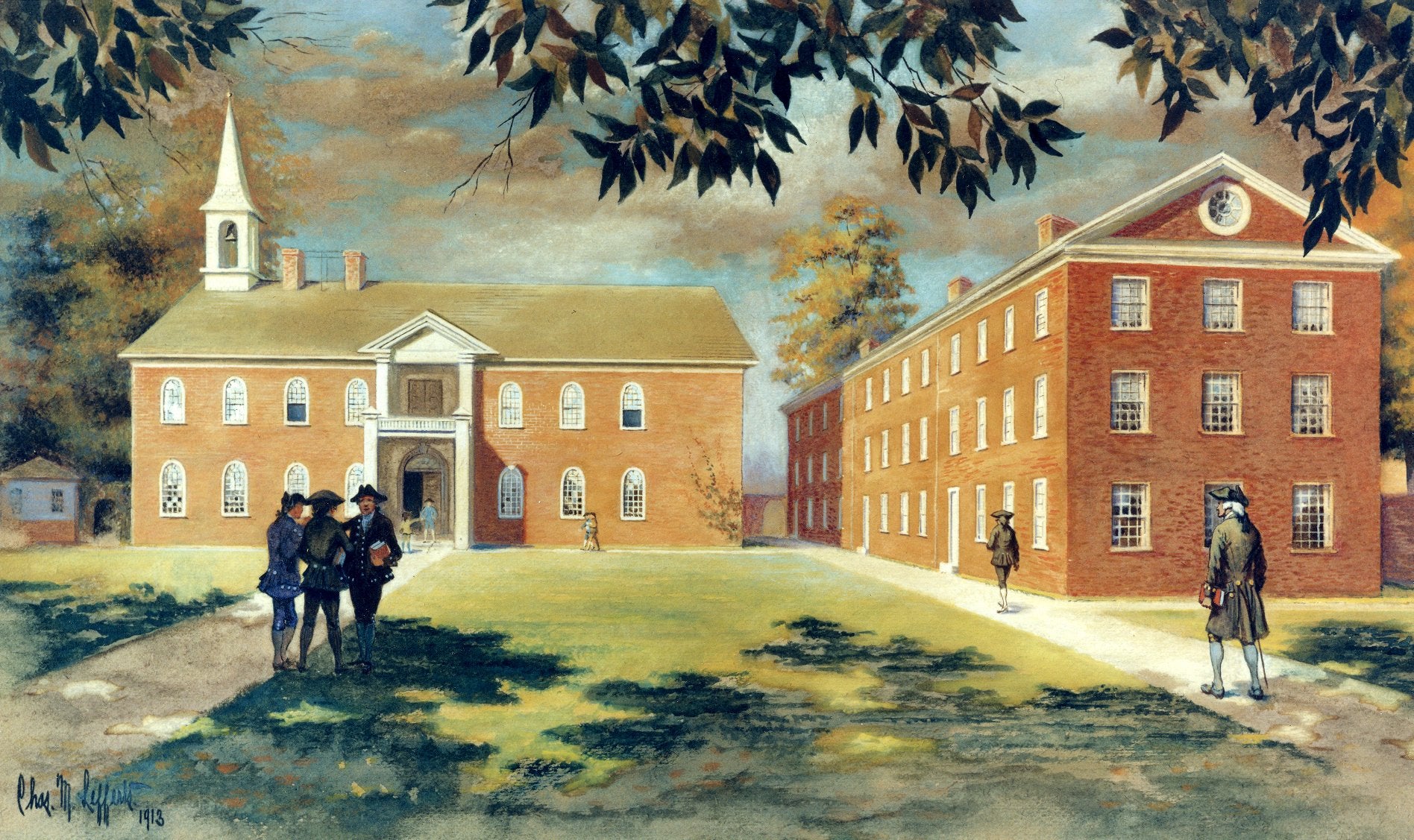James Tilton was born near Dover, Kent County, Delaware on June 1, 1745. He received the degree of Bachelor of Medicine from the College of Philadelphia’s newly founded Medical School (the precursors of the University of Pennsylvania and the University of Pennsylvania School of Medicine, respectively) in 1768. Three years later he presented a thesis titled “De Hydrope” and received the degree of Doctor of Medicine in 1771. He then started a medical practice in Dover, Delaware.
During the American Revolution Tilton served as Surgeon of the Delaware Regiment from 1776 to 1777. He was head of the Continental Army’s military hospitals first as Hospital Physician from 1777 to 1780 and Hospital Physician and Surgeon from 1780 until the end of the war.
In 1782 the trustees of the College of Philadelphia offered Tilton the position of Chair of Materia Medica. Tilton declined the offer feeling as though it would be unpatriotic to leave army service before peace was established.
After the war Tilton returned to his practice in Dover. For three years, from 1783 to 1785 he was named as one of Delaware’s delegates to the Continental Congress and also served in the state’s House of Representatives. Around 1785 widespread malaria in Kent County caused him to relocate north to the vicinity of the city of Wilmington.
On June 11, 1813 President James Madison commissioned Tilton as Physician and Surgeon General of the United States Army (a position now called Surgeon General of the United States Army or, colloquially, Surgeon General). In this position Tilton was charged with directing the affairs of the Medical Department of the Army during the War of 1812. He was honorably discharged on June 15, 1815.
Tilton was a member of various learned societies, including the American Philosophical Society and the College of Physicians of Philadelphia and was the first president of both the Medical Society of Delaware and the Delaware State Society of the Cincinnati. He wrote several books on the treatment of diseases such as cholera, rabies and yellow fever.
James Tilton died at his home near Wilmington, Delaware on May 14, 1822. His remains were disinterred in 1857 and reburied in the Wilmington and Brandywine Cemetery where a monument was erected by the Delaware State Medical Society in his honor.

